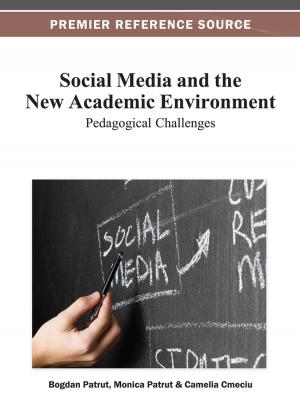Knowledge Management 2.0
Organizational Models and Enterprise Strategies
Nonfiction, Computers, Application Software, Business Software, Business & Finance, Economics| Author: | ISBN: | 9781466605695 | |
| Publisher: | IGI Global | Publication: | September 30, 2011 |
| Imprint: | Information Science Reference | Language: | English |
| Author: | |
| ISBN: | 9781466605695 |
| Publisher: | IGI Global |
| Publication: | September 30, 2011 |
| Imprint: | Information Science Reference |
| Language: | English |
In the last few years, knowledge management practices have evolved in organizations. The introduction of Web 2.0 technologies has encouraged new methods of information usage and knowledge sharing, which are frequently used by employees who already rely on these Web 2.0 technologies in their personal lives. Knowledge Management 2.0: Organizational Models and Enterprise Strategies provides an overview of theoretical and empirical research on knowledge management generation in the Web 2.0 age. Research in this book highlights knowledge management evolution with a global focus and investigates the impact knowledge management 2.0 has on business models, enterprise governance and strategies, human resources, and IT design, implementation, and appropriation in organizations.
In the last few years, knowledge management practices have evolved in organizations. The introduction of Web 2.0 technologies has encouraged new methods of information usage and knowledge sharing, which are frequently used by employees who already rely on these Web 2.0 technologies in their personal lives. Knowledge Management 2.0: Organizational Models and Enterprise Strategies provides an overview of theoretical and empirical research on knowledge management generation in the Web 2.0 age. Research in this book highlights knowledge management evolution with a global focus and investigates the impact knowledge management 2.0 has on business models, enterprise governance and strategies, human resources, and IT design, implementation, and appropriation in organizations.















